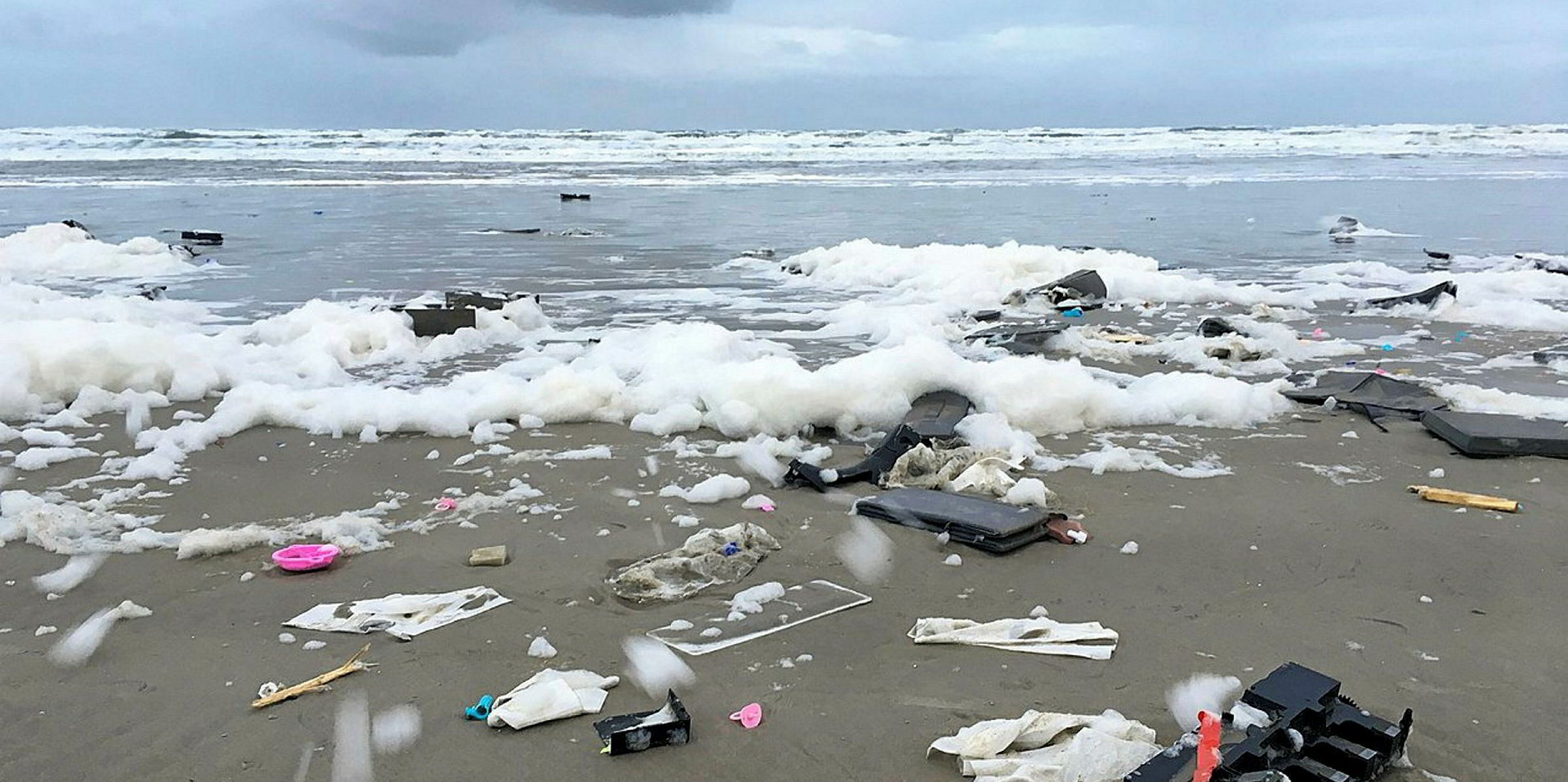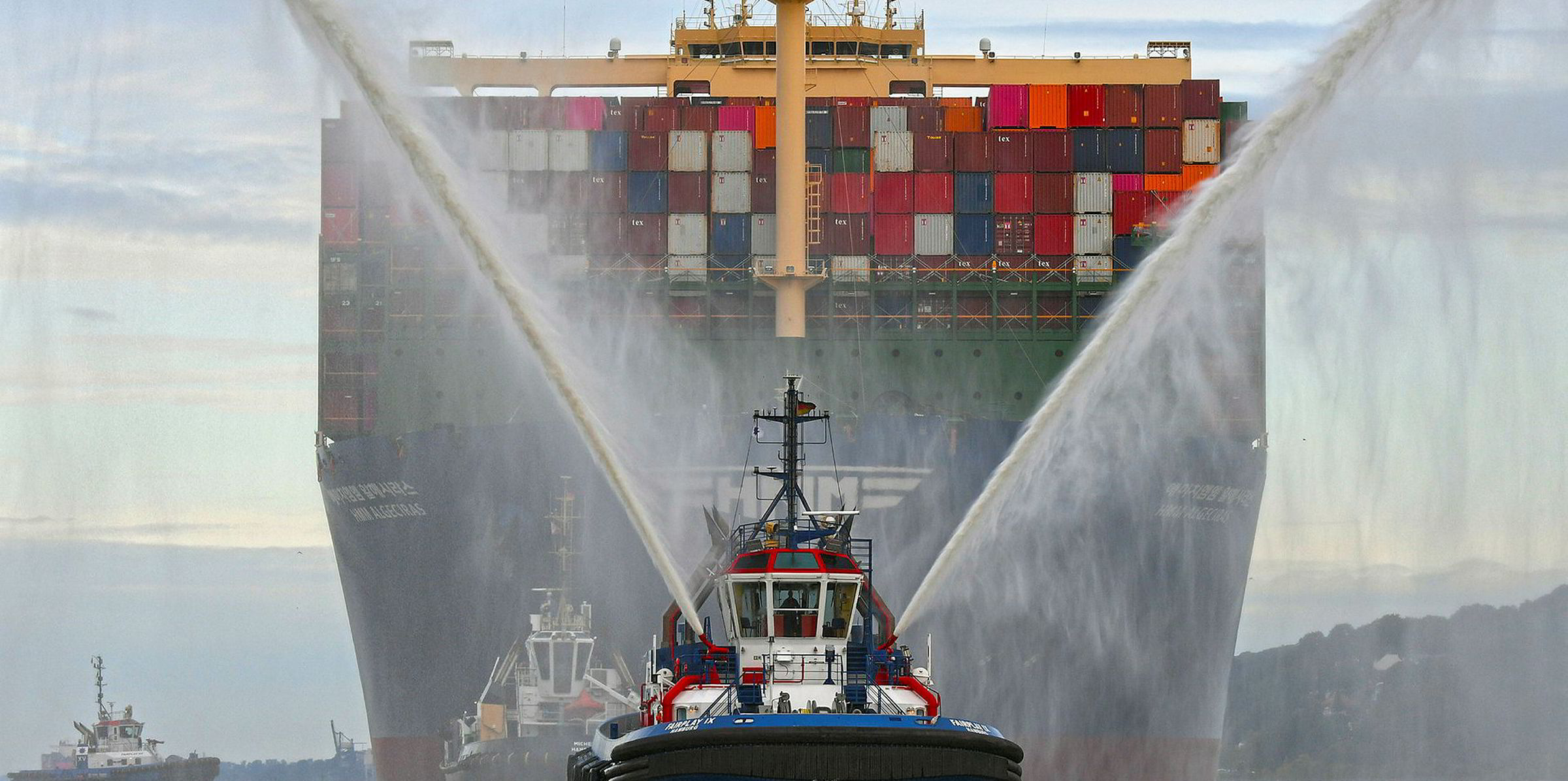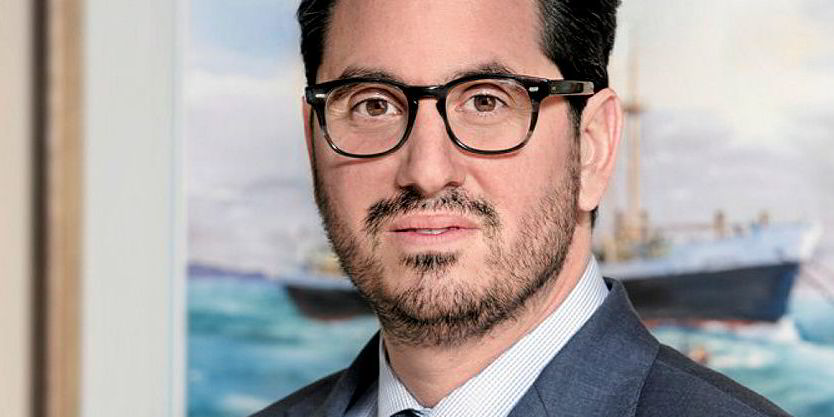Shipping companies and containership masters are responsible for preventing the loss of containers from their vessels, the Dutch Safety Board said in a report into the large loss of boxes from an Mediterranean Shipping Co vessel.
In a 114-page report, the Dutch Safety Board looked at the reasons for the loss of 342 boxes from the 19,224-teu MSC Zoe (built 2015) on the night of 1 January 2019 and the lessons learned from this.
The boxship was en route to Bremerhaven in Germany in stormy, northwesterly wind conditions on a route which took it to the north of the Wadden Islands when it lost the boxes overboard.
Huge amounts of debris from the containers was reported washed up on local beaches.
The Dutch Safety Board concluded that wide containerships sailing in the area in storm-force northwesterly winds, do run the risk of failure of their lashing systems and containers, as a result of which they may lose containers.
The board said it is important to be aware of the complex relationships between environmental conditions, ship motion, ship stability and the limits of lashing systems and containers when sailing on the shipping routes to the north of the Wadden Islands.
"Managing the risk of containers loss on the shipping routes in poor weather conditions, in the current situation, depends on the actions of the master and the crew," the agency said.
"Preventing the loss of containers is in the first place is the responsibility of shipping companies and container ship masters."
The Dutch Safety Board said MSC should make its crews sailing in the area aware of its risks, and it should equip and load ships in a way that prevents container loss.
The agency described the MSC Zoe incident as “a very serious marine casualty”.
Its report draws together the findings of its work with an international investigation team comprising the Panama Maritime Authority (PMA), the German Bundesstelle fur Seeunfalluntersuchung (BSU).
The investigation concluded that a comparable accident such as that with the MSC Zoe could occur again.
Geneva-headquartered MSC said it has provided full cooperation to the investigations behind these reports and will closely study the conclusions.
The liner giant described the accident as "very regrettable" and said it required "a substantial response operation costing several tens of millions of euros overseen and funded by MSC, in full coordination with the Dutch and German authorities".
"We note that the MSC Zoe response operation has uncovered an enormous amount of debris underwater from many different shipping activities and accidents dating back to long before container shipping began," the company said.
MSC said that since the incident it has opted to avoid this southern sailing route and will follow all official and future guidance.
"Safety at sea and the protection of the marine environment are top priorities for MSC. We are committed to minimising the risk of such accidents in future," the liner operator said.

Estimates suggest 3,257 tonnes of cargo, including the containers, were lost into the sea from MSC Zoe.
Articles washed up on Wadden area beaches included garden furniture, video equipment, car components, tyres, textiles, shoes, flip-flops, disposable cutlery, drinking straws, glass, pots and pans, balloons, toy cars, My Little Pony’s, refrigerators, stools, kids’ seats, fleece blankets, jackets, adhesive tape, bags, razor blades, flat screen TVs, scooters, suitcases, pump-action soaps, lights, vacuum hoover hoses, floor mats, sheets of plastic, polystyrene foam, and mattresses.
Two of the containers lost overboard contained dangerous goods and many included numerous plastics in the form of packaging material such as polystyrene foam, film and plastic granules.
By mid-March 2020, 88% of the containers and 75% of the cargo had been salvaged and disposed of.
But 41 containers and more than 800 tonnes of cargo is still in the sea and are not expected to be traceable or retrievable.
Source: Dutch Safety Board report





